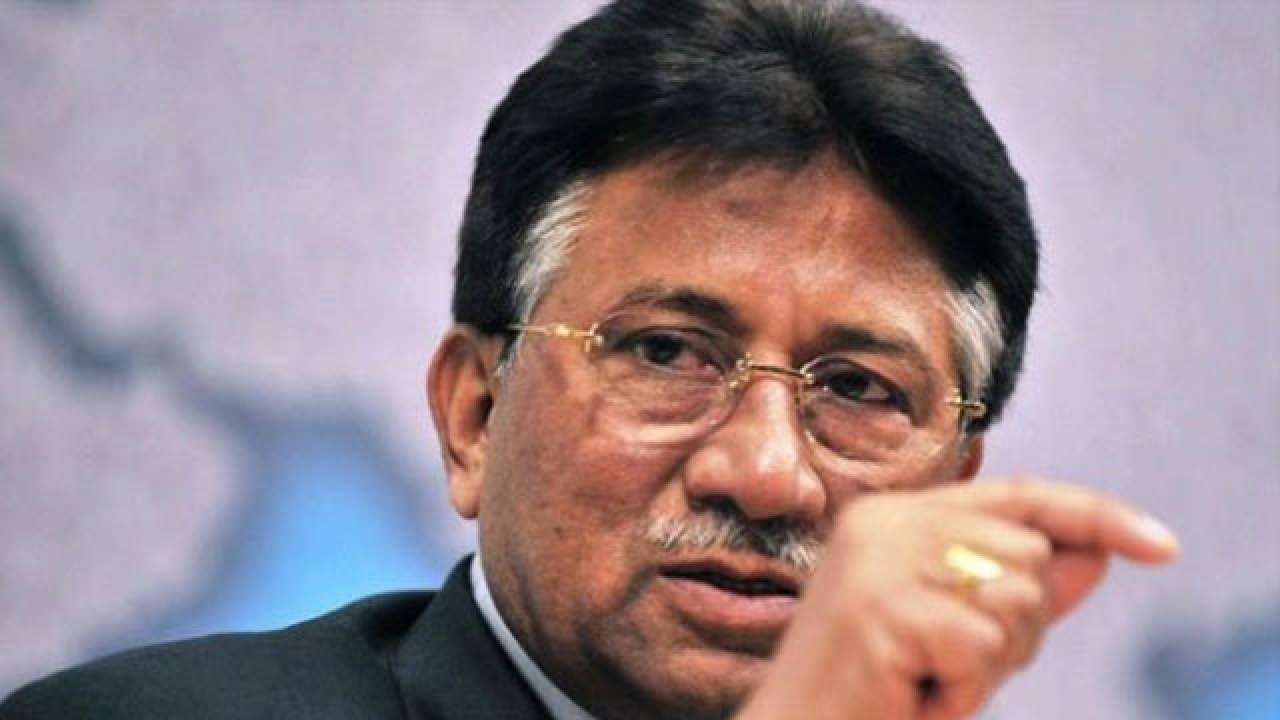
Pak ex-Prez Musharraf sentenced to death in high treason case
Pakistan’s former dictator Pervez Musharraf was on Tuesday (December 17) sentenced to death in the high treason case, becoming the first military ruler to receive the capital punishment in the country’s history.

Pakistan’s former dictator Pervez Musharraf was on Tuesday (December 17) sentenced to death in the high treason case, becoming the first military ruler to receive the capital punishment in the country’s history.
A three-member bench of the special court, headed by Peshawar High Court Chief Justice Waqar Ahmad Seth, handed Musharraf, 76, death sentence in the long-drawn high treason case against him for suspending the Constitution and imposing emergency rule in 2007, a punishable offence for which he was indicted in 2014.
The court issued a 2-1 split verdict and its details would be announced in the next 48 hours.
Before issuing the verdict, the court rejected a plea by the prosecutors to delay the verdict.
The former Army chief left for Dubai for medical treatment in March 2016 and has not returned since, citing security and health reasons.
The special court – comprising Justice Seth, Justice Nazar Akbar of the Sindh High Court (SHC) and Justice Shahid Karim of the Lahore High Court (LHC)- announced the verdict it had reserved on November 19.
The special court’s order came despite an earlier Islamabad High Court (IHC) order stopping it from issuing the verdict.
The IHC’s order had come on November 27 – a day before the special court was set to announce its verdict. It had also directed the government to notify a new prosecution team by December 5.
The new prosecution team for the government appeared before the special court on December 5 after which the special court fixed December 17 as the date to announce the verdict.
However, as the hearing started, the government’s prosecutors submitted new petitions. One of the petitions asked the court to make three individuals – former Prime Minister Shaukat Aziz, former Supreme Court chief justice Abdul Hameed Dogar and former law minister Zahid Hamid – suspects in the case, the Dawn newspaper reported.
“We want to make Musharraf’s facilitators and companion suspects as well. It is important that the trial of all suspects is held at the same time,” the prosecutor said.
Reacting to government prosecutors’s submission of new petitions on the day of final arguments, Justice Karim said, “Submitting such a request after three and a half years means the government doesn’t have the right intentions. Today the case was set for final arguments and now new petitions have been submitted.”
Musharraf’s counsel Raza Bashir told that court that he has submitted a request to record his statement via Section 342 of CrPC.
You can't add multiple timelines in the same post, page or custom post type.
“Musharraf should get a right to defend,” Bashir said, adding that his client’s health was not well enough for him to appear before the court.
Responding to this, Justice Akbar said that the former president had wasted six opportunities to record his statement.
“Supreme Court had ended the right to record his statement via Section 342,” Justice Akbar was quoted as saying in the report.
The high treason trial of the former military dictator for clamping the state of emergency on November 3, 2007, has been pending since December 2013.
He was booked in the treason case in December 2013. Musharraf was indicted on March 31, 2014, and the prosecution had tabled the entire evidence before the special court in September the same year. However, due to litigation at appellate forums, the trial of the former military dictator lingered on and he left Pakistan in March 2016.
In October, the special court was informed that the government had sacked the entire prosecution team engaged by the previous PML-N government to prosecute the high treason case against Musharraf.
On Saturday, in an application filed through his advocates, Musharraf asked the LHC to stay the trial at the special court until his earlier petition pending adjudication by the high court is decided.
In that petition, the former dictator challenged the formation of a special court holding his trial under charges of high treason and legal flaws committed in the procedure.
Meanwhile, shortly before the special court’s verdict, the Lahore High Court recommended a full-bench hearing of Musharraf’s plea for stay in the trial.

